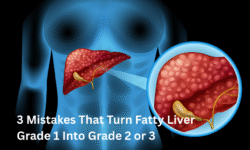
Your gut does much more than just digest food. It’s home to trillions of bacteria that influence your immune system, mood, energy levels, and overall health. When your gut lining becomes damaged, it can trigger a cascade of health problems throughout your entire body.
The good news is that your gut has an amazing ability to heal itself when given the right support. Unlike many health conditions that require lifelong management, leaky gut can often be completely reversed with the right approach to diet, lifestyle, and targeted healing strategies.
In this comprehensive guide, you’ll learn everything you need to know about leaky gut – from recognizing the symptoms to understanding the root causes and implementing natural healing strategies. Whether you’re just starting to suspect you might have leaky gut or you’ve been struggling with digestive issues for years, this guide will give you the tools you need to restore your gut health and reclaim your vitality.
What is Leaky Gut?
Leaky gut, also known as increased intestinal permeability, occurs when the lining of your small intestine becomes damaged and allows undigested food particles, toxins, and bacteria to “leak” through into your bloodstream.
Your Gut Lining: A Protective Barrier
Think of your gut lining like a security system for your body. When it’s healthy, it acts like a selective filter – allowing beneficial nutrients to pass through while keeping harmful substances out. The cells in your intestinal wall are connected by tight junctions that control what can and cannot enter your bloodstream.
When the Barrier Breaks Down
When your gut lining becomes damaged, these tight junctions loosen up. This creates gaps that allow larger particles to pass through that shouldn’t be there. Your immune system sees these particles as foreign invaders and launches an attack, creating inflammation throughout your body.
This inflammatory response doesn’t just affect your digestive system – it can impact your brain, skin, joints, and virtually every other system in your body. This is why leaky gut symptoms can be so varied and seemingly unrelated.
The Gut-Body Connection
Your gut contains about 70% of your immune system and produces many of the same neurotransmitters found in your brain. This means that when your gut health suffers, it can affect your mood, energy, immune function, and overall well-being.
Understanding this connection helps explain why healing your gut can have such profound effects on your overall health and why addressing leaky gut often leads to improvements in seemingly unrelated health issues.
Recognizing Leaky Gut Symptoms
Symptoms of leaky gut can be surprisingly diverse because inflammation from your gut can affect virtually any system in your body. Many people suffer with these symptoms for years without realizing they’re connected to gut health.
Digestive Symptoms: The Obvious Signs
The most obvious signs of leaky gut affect your digestive system directly:
- Chronic bloating, especially after meals
- Gas and abdominal discomfort
- Diarrhea or constipation (or alternating between both)
- Acid reflux or heartburn
- Stomach cramps or pain
- Feeling full quickly or loss of appetite
Food-Related Issues
Leaky gut often leads to increased food sensitivities and reactions:
- New food allergies or sensitivities developing
- Reactions to foods you used to tolerate well
- Cravings for sugar or refined carbohydrates
- Feeling worse after eating certain foods
- Multiple food intolerances
Systemic Symptoms: Beyond the Gut
Because leaky gut triggers body-wide inflammation, symptoms can appear throughout your body:
- Chronic fatigue that doesn’t improve with rest
- Brain fog, difficulty concentrating, or memory problems
- Mood issues like anxiety, depression, or irritability
- Frequent headaches or migraines
- Joint pain or stiffness
- Muscle aches and pains
Skin and Immune Issues
Your skin often reflects your gut health:
- Acne, eczema, or other skin conditions
- Rashes or unexplained skin irritation
- Slow wound healing
- Frequent infections or getting sick often
- Seasonal allergies or environmental sensitivities
Sleep and Energy Problems
Gut health significantly impacts your energy and sleep:
- Difficulty falling asleep or staying asleep
- Waking up tired even after a full night’s sleep
- Energy crashes, especially in the afternoon
- Feeling “wired but tired”
Also Read, 3 Mistakes That Turn Fatty Liver
Understanding the Root Causes

To effectively heal leaky gut, it’s important to understand what causes the intestinal lining to become damaged in the first place.
Dietary Factors: What You Eat Matters
Processed Foods and Sugar: Highly processed foods, refined sugars, and artificial additives can damage your gut lining and feed harmful bacteria. These foods also lack the nutrients your gut needs to maintain its protective barrier.
Gluten and Other Inflammatory Foods: For many people, gluten can trigger the release of zonulin, a protein that loosens the tight junctions in your gut lining. Other common inflammatory foods include dairy, corn, soy, and foods high in omega-6 oils.
Alcohol: Regular alcohol consumption can directly damage your intestinal lining and disrupt the balance of bacteria in your gut.
Medications That Harm Your Gut
Antibiotics: While sometimes necessary, antibiotics kill both harmful and beneficial bacteria in your gut. Repeated antibiotic use can severely disrupt your gut microbiome and damage your intestinal lining.
NSAIDs: Pain relievers like ibuprofen, aspirin, and naproxen can cause direct damage to your gut lining, especially with regular use.
Proton Pump Inhibitors: Acid-blocking medications can alter your gut pH and microbiome, potentially contributing to leaky gut.
Stress: The Silent Gut Destroyer
Chronic stress has a profound impact on gut health:
- Stress hormones like cortisol can damage your gut lining
- Stress reduces blood flow to your digestive system
- It alters the balance of bacteria in your gut
- Stress can slow digestion and increase inflammation
Environmental Toxins
Modern life exposes us to many toxins that can damage gut health:
- Pesticides and herbicides in food
- Heavy metals from various sources
- Chemicals in household products
- Air pollution and other environmental contaminants
Infections and Imbalances
Various infections can trigger or worsen leaky gut:
- Bacterial overgrowth (SIBO)
- Candida or other fungal overgrowth
- Parasitic infections
- Viral infections that affect the gut
Natural Remedies and Healing Strategies
The good news is that your gut has an remarkable ability to heal when given the right support. Here are proven natural strategies to restore your gut health.
The Remove, Replace, Repair, Rebalance Approach
This systematic approach addresses leaky gut healing in four key phases:
Remove: Eliminate foods and factors that damage your gut
Replace: Add digestive support to help your body process nutrients
Repair: Use targeted nutrients to heal your gut lining
Rebalance: Restore healthy bacteria balance
Healing Foods for Your Gut
Bone Broth: Rich in collagen, glycine, and other nutrients that help repair your gut lining. Drink 1-2 cups daily or use it as a base for soups and stews.
Fermented Foods: Naturally fermented foods like sauerkraut, kimchi, kefir, and yogurt provide beneficial bacteria and support gut healing.
Anti-Inflammatory Foods: Focus on foods rich in omega-3 fatty acids like wild-caught fish, walnuts, and flaxseeds. Include plenty of colorful vegetables and fruits rich in antioxidants.
Fiber-Rich Foods: Soluble fiber from vegetables, fruits, and legumes feeds beneficial bacteria and supports gut healing.
Key Supplements for Gut Healing
L-Glutamine: L glutamine for leaky gut is one of the most important supplements. This amino acid is the primary fuel for intestinal cells and helps repair the gut lining. Take 5-10 grams daily on an empty stomach.
Probiotics: Probiotics for leaky gut help restore beneficial bacteria balance. Look for a high-quality supplement with multiple strains and at least 50 billion CFUs.
Digestive Enzymes: Help break down food properly, reducing the burden on your damaged gut lining.
Zinc: Essential for gut lining repair and immune function. Take 15-30mg daily with food.
Omega-3 Fatty Acids: Reduce inflammation and support gut healing. Aim for 2-3 grams daily of EPA and DHA.
Specialized Gut Healing Supplements
Leaky gut supplements often combine multiple healing nutrients:
- Leaky gut powder formulations typically contain L-glutamine, collagen, and other gut-healing nutrients
- Marshmallow root and slippery elm soothe and protect the gut lining
- Deglycyrrhizinated licorice (DGL) supports gut lining repair
- Aloe vera gel can help reduce inflammation and promote healing
Testing and Monitoring Your Progress
Understanding whether you have leaky gut and tracking your healing progress can help guide your treatment approach.
Leaky Gut Testing Options
Lactulose/Mannitol Test: This leaky gut test measures intestinal permeability by having you drink a solution containing two different sugars and measuring how much of each appears in your urine.
Zonulin Testing: Zonulin is a protein that regulates intestinal permeability. Elevated levels in blood or stool can indicate leaky gut.
Food Sensitivity Testing: While not a direct test for leaky gut, food sensitivity panels can help identify foods that may be contributing to gut inflammation.
Comprehensive Stool Analysis: Can reveal imbalances in gut bacteria, presence of pathogens, and markers of inflammation.
Signs Leaky Gut is Healing
Signs leaky gut is healing typically appear gradually over weeks to months:
- Improved digestion with less bloating and gas
- Increased energy and better sleep
- Clearer thinking and improved mood
- Reduced food sensitivities
- Better skin health
- Fewer headaches and less joint pain
- Stronger immune function with fewer infections
Tracking Your Progress
Keep a symptom diary to track improvements in:
- Digestive symptoms
- Energy levels
- Sleep quality
- Mood and mental clarity
- Skin health
- Food tolerance
Creating Your Healing Timeline
Many people wonder heal leaky gut in 2 weeks – while some improvements can be seen quickly, complete healing typically takes longer.
Week 1-2: Initial Changes
During the first two weeks of leaky gut treatment, you might notice:
- Reduced bloating and gas
- Improved bowel movements
- Slightly better energy
- Less digestive discomfort after meals
Month 1-2: Significant Improvements
As your gut lining begins to repair:
- Food sensitivities may start to improve
- Energy levels increase more noticeably
- Sleep quality improves
- Mood becomes more stable
- Skin issues may begin to clear
Month 3-6: Deep Healing
With consistent treatment:
- Most digestive symptoms resolve
- Food tolerance significantly improves
- Energy and mental clarity are much better
- Immune function strengthens
- Overall health and vitality improve
Factors That Affect Healing Time
Several factors influence how quickly your gut heals:
- Severity of damage
- How long you’ve had leaky gut
- Your overall health status
- Consistency with treatment
- Stress levels
- Sleep quality
- Other health conditions
Comprehensive Treatment Approaches
How to fix leaky gut requires a comprehensive approach that addresses all contributing factors.
Dietary Protocol
Phase 1: Elimination (2-4 weeks)
Remove common inflammatory foods:
- Gluten and wheat products
- Dairy products
- Processed foods and sugar
- Alcohol
- NSAIDs and unnecessary medications
Phase 2: Healing Foods (4-8 weeks)
Focus on gut-healing foods:
- Bone broth and collagen-rich foods
- Fermented vegetables
- Anti-inflammatory foods
- Plenty of vegetables and moderate fruits
- High-quality proteins
Phase 3: Reintroduction (4-6 weeks)
Gradually reintroduce eliminated foods one at a time to identify specific triggers.
Supplement Protocol
A comprehensive leaky gut syndrome treatment supplement protocol might include:
- L-glutamine: 5-10g daily
- Probiotics: 50-100 billion CFUs daily
- Digestive enzymes with meals
- Omega-3 fatty acids: 2-3g daily
- Zinc: 15-30mg daily
- Vitamin D: 2000-4000 IU daily
Lifestyle Modifications
Stress Management: Practice stress-reduction techniques like meditation, yoga, deep breathing, or regular exercise.
Sleep Optimization: Aim for 7-9 hours of quality sleep nightly. Poor sleep impairs gut healing.
Regular Exercise: Moderate exercise supports gut health, but avoid overtraining which can increase inflammation.
Toxin Reduction: Minimize exposure to environmental toxins by choosing organic foods when possible and using natural household products.
Long-Term Gut Health Maintenance
Once you’ve healed your gut, maintaining that health requires ongoing attention to diet and lifestyle factors.
Sustainable Eating Habits
- Continue eating plenty of vegetables and fiber-rich foods
- Include fermented foods regularly
- Limit processed foods and sugar
- Stay hydrated
- Eat mindfully and chew thoroughly
Ongoing Supplement Support
Many people benefit from continuing certain supplements long-term:
- A high-quality probiotic
- Digestive enzymes if needed
- Omega-3 fatty acids
- Vitamin D
Regular Monitoring
Pay attention to your body’s signals and address issues early:
- Notice how different foods affect you
- Manage stress proactively
- Get adequate sleep consistently
- Address infections or health issues promptly
Conclusion
Healing leaky gut is absolutely possible with the right approach, patience, and consistency. While the journey may take several months, the improvements in your overall health and quality of life make it well worth the effort.
Remember that leaky gut healing is not just about taking supplements or following a strict diet for a few weeks. It’s about creating lasting changes that support your gut health for life. The strategies outlined in this guide provide a comprehensive roadmap for not only healing your gut but maintaining optimal digestive health long-term.
Your gut health affects virtually every aspect of your well-being – from your energy and mood to your immune function and skin health. By taking steps to heal your gut, you’re investing in your overall health and vitality.
Be patient with the process, celebrate small improvements along the way, and remember that everyone’s healing journey is unique. With consistent effort and the right support, you can restore your gut health and experience the vibrant health you deserve.






